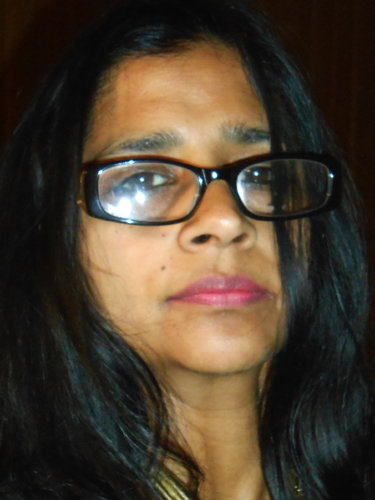Nita Mishra
We have many postgraduate and early stage DSAI members who are helping to advance development research from various disciplinary angles. To showcase the innovative and exciting research being undertaken by these DSAI members, we will be introducing a postgraduate or early stage researcher each month by asking them five questions that give an insight into their research experiences. This month, we asked Nita Mishra about her research. Nita is a PhD Candidate at University College Cork and was recently awarded a UCC Strategic Research Fund (SRF) PhD Scholarship.
How did you get into development research?
It was not a conscious decision as I was initially training to join the Indian Civil Service. However, while doing my MA-MPhil in New Delhi, in the early 90s, I got an offer to research tribal/eco-health/forestry/development-induced-displacement at the Indian Social Institute, one of the very best research Institutes in the country. During my BA, I had also been involved in women’s issues, and during my MA/MPhil I was engaged in university campus politics. I travelled to rural areas, wrote field reports, and was involved with community groups. I started a PhD on natural resource use and management, but left the programme in 1996. I then worked in the development field, firstly with the Ford Foundation on forestry and water resources, then with the Mac Arthur Foundation on monitoring and evaluation of women’s livelihoods projects for NOVIB and others, and subsequently I was the Odisha Literacy Consultant for DFID, all in the late 1990s-early 2000s.
What are you working on at the moment?
My PhD thesis examines the concept of rights-based approaches to development with a focus on right to food entitlements in Odisha State, India. It unravels the linkages between basic needs to food, healthcare, livelihood, and education, and, most significantly, land ownership for forest-based communities without which all other rights are meaningless. It is theoretically based on Amartya Sen’s idea of justice, and key concepts include women, gender, empowerment, rights, hunger, poverty, justice, and rights-based approaches.
What impact do you hope your research will have?
My research brings in grassroots development practitioners voices to the forefront of the debate on RBAs. Hopefully, this will encourage policy makers, INGOs and donors to re-examine the concept of rights-based approaches to development and find nitty-gritty details previously missed out in policy making. This will help translate rights into practice and link capability and entitlement approaches to development with rights-based approaches.
Which book or writer has most influenced your career?
My PhD research was fuelled by Amartya Sen’s “Idea of Justice.” I always lookout for what Prof. Jean Dreze has written since he is a development practitioner based in India. Decades earlier, it was Maria Mies and Vandana Shiva’s “Ecofeminism.”
What one recommendation would you have for anyone interested in postgraduate study and a research career in development studies?
Passion for the subject and the issue you are planning to study is the key to any research.
